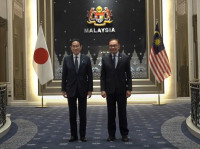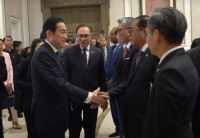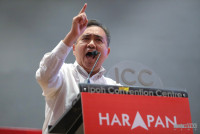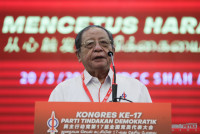ON a 2019 autumn morning, heavy with rain, Emperor Naruhito announced his enthronement to the mythical sun goddess, Amaterasu, in the Japanese imperial palace grounds.
Later, he stood in the palace’s most prestigious space, the Matsu-no-ma, for his ascension to the Chrysanthemum throne.
Dignitaries and royals from around the world travelled to witness the crowning of the oldest continuous hereditary monarchy. Among them was British monarch King Charles III who was officially crowned in a three-day event this weekend.
His ceremony will be attended by Crown Prince Akishino, the emperor’s brother, as a representative of the Japanese monarchy.
Japan and the United Kingdom adopt a constitutional monarchy system of government where monarchs are ceremonial leaders. In a democratically elected government, the power lies within the constitution and monarchies in these systems survive as symbolic figures to unify their people.
Even though constitutional monarchs do not have formal political powers in a democracy, research has found they can influence public opinion through their popularity.
The emperor of Japan was a powerful political and religious leader up until the newly established democratic constitution severely restricted his role to be “only symbolic and ceremonial” and “not political”, after Japan’s defeat in World War II.
Since then, the emperor is strictly not allowed to express political messages – he doesn’t even have voting rights.
But a 2018 nationally representative survey found more than 75% of the Japanese public still had favourable feelings and respect toward the emperor.
Zero per cent of respondents said they had unfavourable feelings toward the emperor and 22% answered to having "no feelings" towards him.
A 2020 survey of 1,527 people showed the Japanese emperor could still influence people’s opinions on national politics.
While the impact may not be big, the results of a study by researchers from Waseda University in Japan and Nazarbayev University in Kazakhstan indicate his influence can cut across ideologies and influence people regardless of their political beliefs.
Freedom of expression in Japan can be framed as both left-wing (for example, the regulation of hate speech) and right-wing (such as the regulation of publicly funded anti-nationalistic exhibitions).
The study asked what people thought about the regulation of public expression in two contrasting contexts. In one – their thoughts on regulating public hate speech toward foreigners – typically garner higher support from the left-wing public.
Alternatively, about regulating public art exhibitions that negatively portray Japanese culture and history, right-wing politicians are the typical proponents of the regulation.
Researchers randomly asked what they thought about the increasing intensity of speech or behaviour that ethnically or racially discriminate against foreigners (hate speech) or art exhibitions that negatively portray Japanese culture and history at publicly-managed museums and events.
Once they had answered, respondents were shown a quote from a speech by former emperor Akihito in which he said “securing freedom of expression is fundamental to democracy and very important”.
When asked the initial question again, researchers found Japanese people lowered their support for regulating expression in public spaces, in line with the views of the former emperor.
The implication of the evidence is still open to discussion and there are insufficient studies about how and when such an influence is strengthened or weakened.
We could be concerned that the hereditary figure, who is not chosen through election, can have a political influence or the cross-cutting influence of the emperor implies that he can play a role in alleviating ideological divisions in democratic politics.
At the very least, we should stop assuming that monarchs have no real political power in democratic politics. – The Vibes, May 8, 2023
Susumu Annaka is an assistant professor at Hirosaki University, Japan. He was at Waseda University at the time the original article went to publish. His articles appear in World Development and other refereed journals. His research featured in this article was funded by JSPS Kakenhi.
Gento Kato is an assistant professor at Nazarbayev University, Kazakhstan. His works fall within the areas of political behaviour, formal modelling and quantitative methodologies.
Published under Creative Commons and in partnership with 360info.org



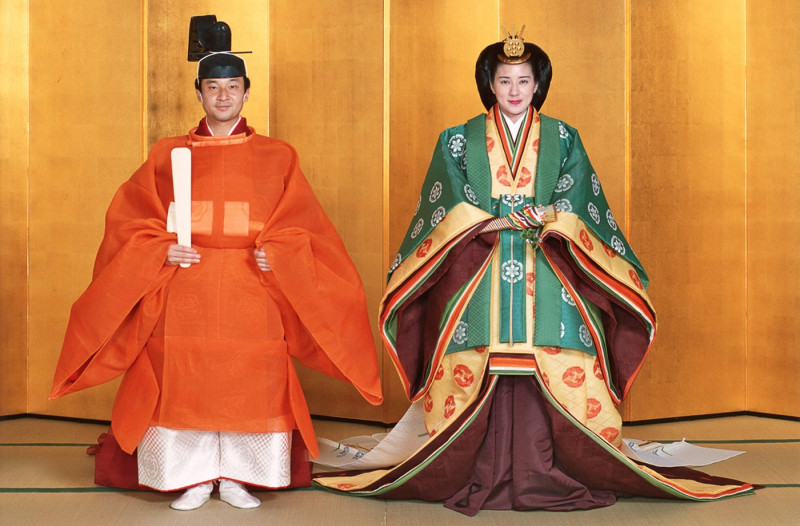

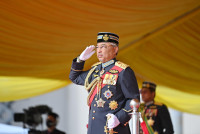

_Summit_in_Tokyo._Facebook-PMO_Malaysia_pic..png)
